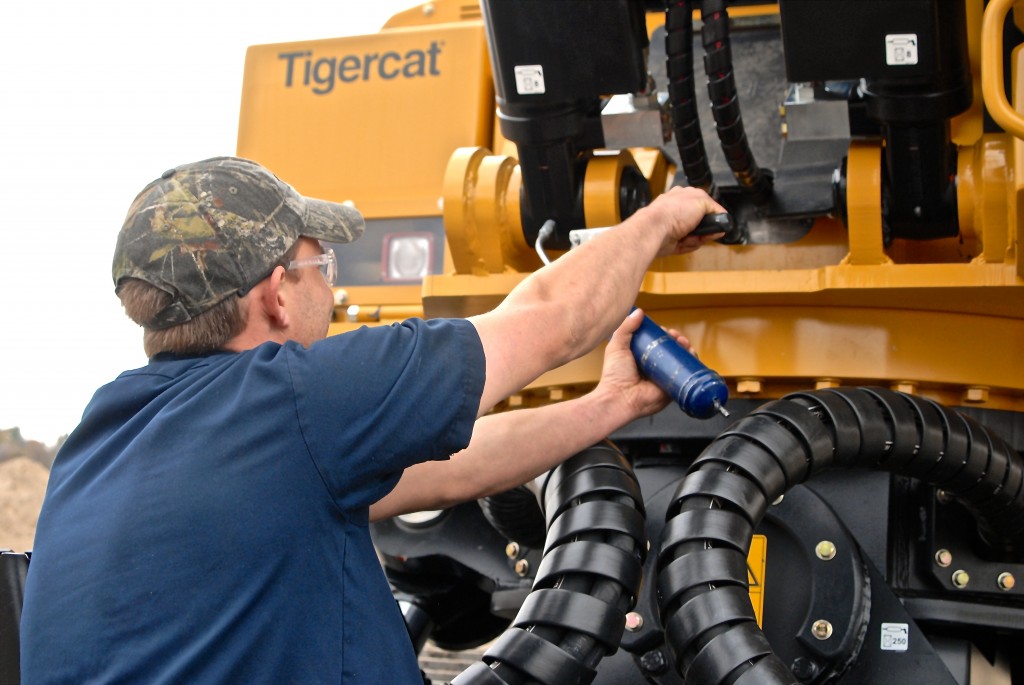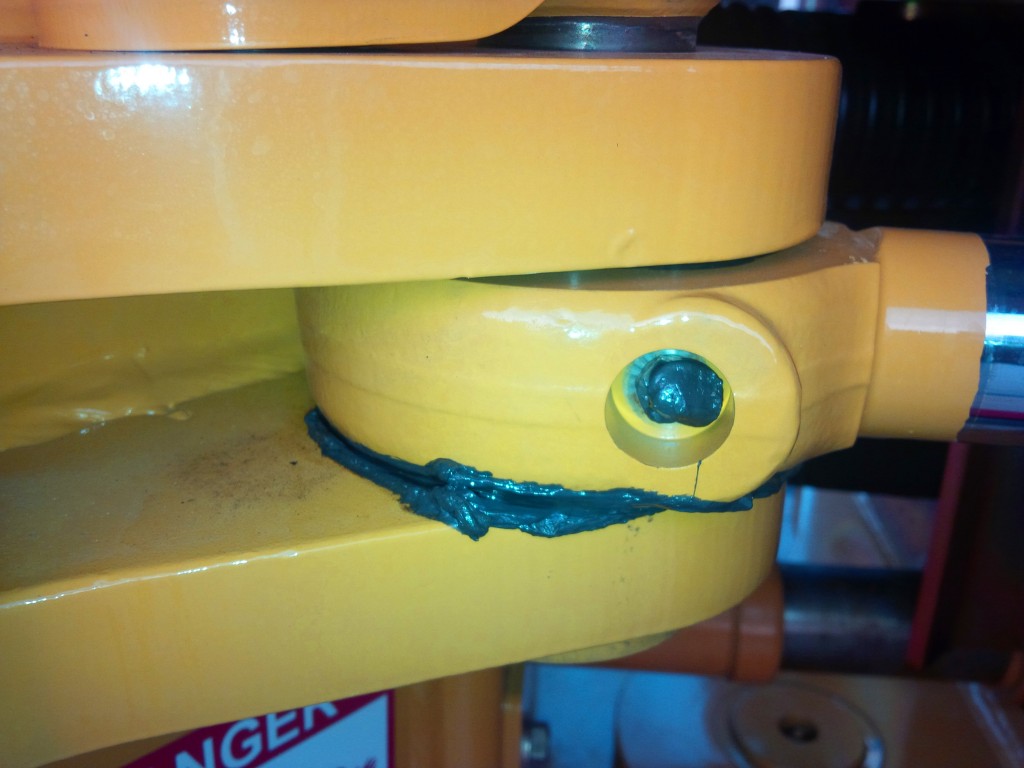For grease to do its job effectively, it must be present, it must be clean, and it must be good quality. Recognize the importance of regular greasing.
— Pierre Fortin, Tigercat service administrator
Every workday, at least once a day, someone has to take a trip around your machinery and inject some of that gooey stuff called grease into all of the moving joints. This can be fun when greasing your brand new machine for the first time. After all it provides you the opportunity to see that new beast up close and personal.

Regular greasing also flushed out the old grease and the contaminants trapped within.
On the second day the novelty has generally worn off and greasing the beast becomes nothing more than a chore. We live in the 21st century, where we can turn on the sprinkler system or preheat the oven remotely from our iPhones. So why do we have to manually grease pin joints and bearings, making it feel like the 19th century? Well, here are a couple of good reasons why regular greasing is still the most effective way to make moving joints last on heavy equipment.
Good quality grease can take the high pressures associated with forestry applications and remain in place between parts that are subjected to very high loads, keeping them apart from one another to eliminate the metal-on-metal wear that would otherwise occur. Grease also acts as a shock absorber, protecting the metal on the pins and bushings on those occasions when the operator says, “Oops!” But for the grease to do its job, it must be present, it must be clean, and it must be good quality.
If grease intervals are too long, the joints will run dry and damage to the metal components will occur very quickly. Just a few movements of a dry joint can initiate irreparable damage, especially in cases where a machine is used in very high cycle operations, such as small stem harvesting with a feller buncher. In this case, the normal greasing interval of eight hours may not be enough and the pin joints on the saw head and boom could get dangerously close to becoming dry. Therefore it is advised to increase the frequency of greasing joints that are subjected to higher cycles.
If care is not taken when cleaning the fittings before pumping grease in, the dirt sitting on top of the grease fitting will be pushed into the joint. The mix of grease and dirt can work on the metal surfaces as a rubbing compound would, causing premature wear of the metallic components.
Dirt can also enter the grease joints around the pins and work its way between the pins and bushings. Some of the grease joints are sealed to prevent this contamination, while others are not. It is important to know which joints on your machines are more susceptible to contamination. These specific joints should be greased more often and with more grease than normal to flush the joint of these abrasive contaminants.
Good quality Modern timber harvesting machinery is more productive and capable of more cycles per given time period than ever before, making it that much more important to use good quality grease. Since the very beginning, Tigercat has recommended lithium base grease with min. 3% molybdenum disulfide on all pin joints. This type of grease is water resistant and will not break down under the extreme pressures that the pivots are subjected to in heavy-duty forestry applications.
Most petroleum product companies offer good quality Lithium base greases that can be used on Tigercat machines, but some are better than others. To make your choice easy, Tigercat offers its own brand of lithium complex base grease with 3%+ molybdenum disulfide, specifically made for heavy-duty forestry applications.

Tigercat’s brand of lithium complex base grease with the proper quantity of molybdenum disulfide is specifically made for heavy-duty forestry applications.
Lithium complex grease possesses many of the same properties as simple lithium soap greases. However, an important distinction is the higher dropping point, allowing lithium complex grease to perform at higher temperatures. The dropping point is higher than that of simple lithium soap grease, due to the presence of a thickening component known as the complexing agent.
Lithium complex grease also has the ability to maintain consistency when subjected to high mechanical shear forces. A high percentage of Moly (3-5% Molybdenum Disulfide) means that the Tigercat heavy-duty forestry grease can support extreme pressures without breaking down. Knowing that you are extending the life of your machine might make your next trip to grease feel a little more rewarding, even if you aren’t sailing on the Aegean Sea.